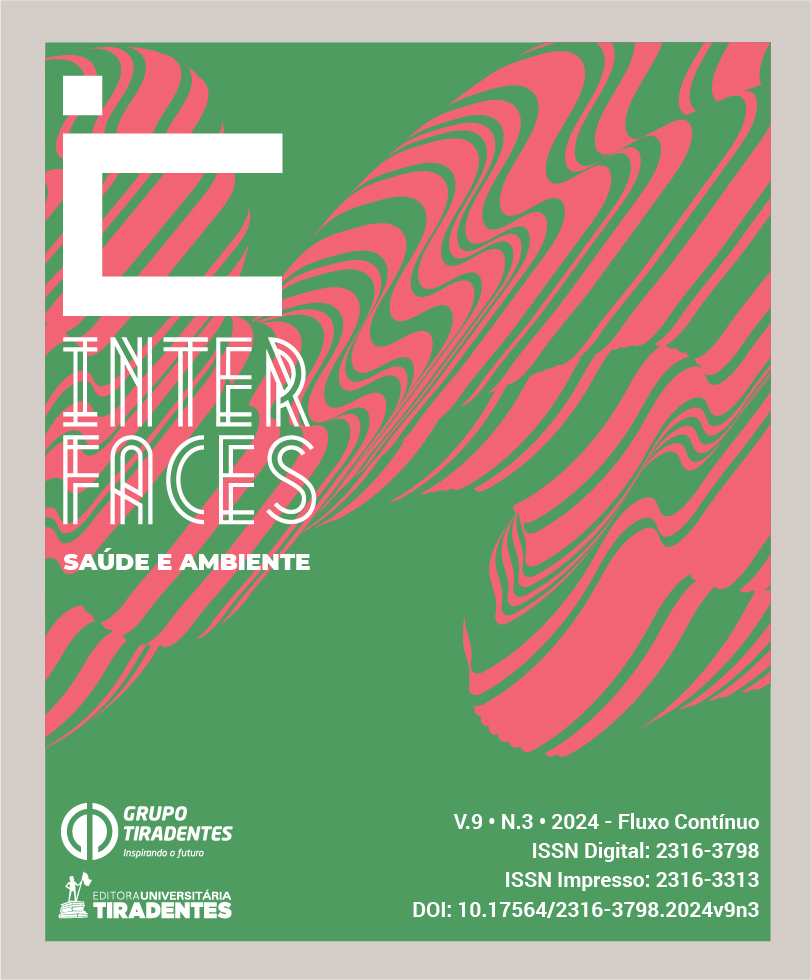PIPER PLANTS AS AN ALTERNATIVE TO THE CONTROL OF AEDES AEGYPTI AND AEDES ALBOPICTUS: AN INTEGRATIVE REVIEW
DOI :
https://doi.org/10.17564/2316-3798.2024v9n3p610-631Publié-e
Téléchargements
Téléchargements
Numéro
Rubrique
Licence
(c) Tous droits réservés Interfaces Científicas - Saúde e Ambiente 2024

Cette œuvre est sous licence Creative Commons Attribution - Pas d'Utilisation Commerciale 4.0 International.
Autores que publicam nesta revista concordam com os seguintes termos:
a. Autores mantêm os direitos autorais e concedem à revista o direito de primeira publicação, com o trabalho simultaneamente licenciado sob a Licença Creative Commons Attribution que permite o compartilhamento do trabalho com reconhecimento da autoria e publicação inicial nesta revista.
b. Autores têm permissão e são estimulados a distribuir seu trabalho on-line (ex.: em repositórios institucionais ou na sua página pessoal), já que isso pode gerar aumento o impacto e a citação do trabalho publicado (Veja O Efeito do Acesso Livre).
Résumé
Aedes aegypti and A. albopictus are the main vectors of severe arboviruses. Plant-derived natural products may represent an important source of secondary metabolites for controlling these vectors. Therefore, we performed an integrative literature review on the effectiveness of Piper spp. as natural alternative to the control of A. aegypti and A. albopictus in experimental assays. We searched the scientific databases available in PubMed, Scopus, and Google Scholar for articles published between 2002 and 2022. A total of 225 articles were preselected; however, 41 studies were evaluated in detail after applying the exclusion and inclusion criteria. We observed the use of 43 different species of Piper, of which Piper aduncum (n=9, 21%) was the most commonly used. The plant structures most commonly used in bioassays were the leaves (n = 28; 68%), which were processed as crude extracts (n = 23; 56%) to evaluate the larvicidal effect (n = 36; 88%) on A. aegypti (n = 40; 97.5%). The best LC50 (lethal concentration capable of killing 50% of the organism of interest) was observed for the extract of P. hispidum leaves against larvae. The secondary metabolites frequently found in natural products derived from Piper were: α-selinene, β-pinene, pelitorin, E-caryophyllene, linalool, and germacrene D. The review synthesises knowledge generated over 20 years to confirm the potential of Piper in controlling A. aegypti and A. albopictus. Our data indicate that further studies on these plants can be performed to discover alternative tools for controlling the populations of these vectors.




















